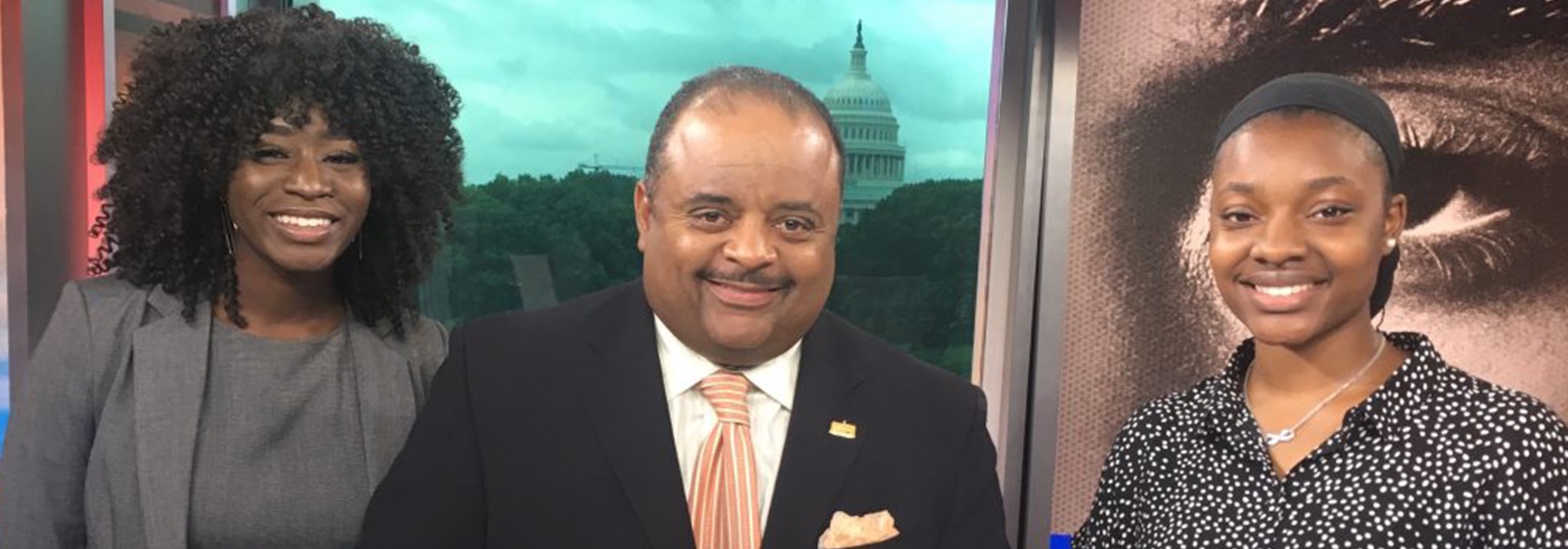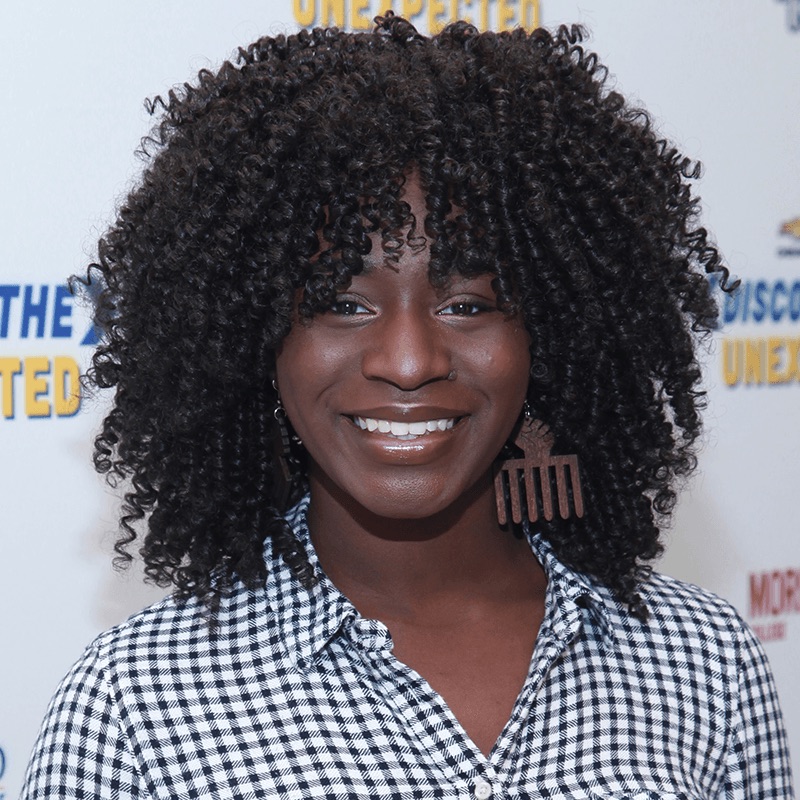
Noni Marshall, Roland Martin, Alexa Imani Spencer
By Alexa Imani Spencer and Noni Marshall (NNPA/DTU Journalism Fellows)
Alarmed by the critical financial state of historically black colleges and universities (HBCUs) throughout the nation, “News One Now” host Roland S. Martin has issued a call to action to address the problem.
Several weeks into the initiative, Martin has been urging viewers and followers on social media to get involved by donating to an HBCU of their choice.
“It’s an abomination, and I use that word very clearly, to have HBCUs where only 3 to 5 percent of their graduates give a dollar,” Martin said.
The movement began with a lapel pin. After a series of speeches at academic institutions, Martin accumulated a collection of pins representing each school. Inspired, he began to promote the cause, #HBCUGivingDay, by wearing a different pin on his show daily.
“It started with the universities I had given commencement speeches,” Martin said. “It literally started with me saying, ‘tomorrow morning I’m going to put this pin on.’”
On his show, Martin has showcased several lapel pins in support of giving, including Harris-Stowe State University in St. Louis, Grambling State University in Grambling, Louisiana, Virginia State University in Petersburg, Virginia, and Spelman College in Atlanta.
HBCUs have had a chronic history of financial instability, causing many to close and cut programs, which ultimately minimizes the opportunity for students to engage in higher education.
Martin suggests that this can be avoided if alumni commit to giving.
“The problem I have is not with them only giving x amount of money. The problem is not giving anything,” he said.
On June 12, Martin implored viewers to donate to Virginia State University, a public historically black land-grant university in Petersburg, Virginia, an appeal that proved to be effective.
Virginia State University National Alumni Association President Franklin Johnson Jr. said numerous people have reached out about how to give.
“I feel honestly, as serving as the National Alumni Association president, there has been some benefit from the initiative,” said Johnson, who also decided to join the giving pool. “I give several times, myself, throughout the year, but I just felt the need because he called out my school.”
The Virginia State University National Alumni Association has also launched its own giving campaign, 1,000 Trojans Giving 100 Dollars. Introduced in March 2016, the initiative seeks to match a $100,000 donation given to the university by its president, Makola Abdullah and his wife, Ahkinyala Cobb-Abdullah. To date, they have received over $50,000 in donations.
“Our goal is to be as close to the $100,000 by homecoming. We’re really pushing for that,” Johnson said.
Florida A&M University (FAMU) has begun its own crusade encouraging alumni to give back. Lt. Col. Gregory Clark, president of FAMU National Alumni Association, appeared on News One Now to discuss solutions to low alumni giving rates.
Clark acknowledged that FAMU’s alumni participation is not where it could be.
“We’re around 5 percent [alumni giving], and that’s unacceptable for us. We’re trying to push the narrative that you’ve got to give to ensure we can get those giving rates up,” Clark said.
The FAMU National Alumni Association routinely sees its biggest spike in alumni donations during its annual national convention fundraising breakfast. The 2016 breakfast alone raised $715,000.
The overall message that people must receive is the importance of supporting all black institutions, Martin said. While black colleges and universities are the focus of the initiative, they are only a segment of what makes up the black community. Media, civil rights organizations, women’s rights organizations, fraternities and sororities also need consistent attention.
“All of those things make up the black community, because that’s what provides the support and the resources for it,” Martin said.
If the black community fails to recognize this, he said, then it is subject to the control of parties without vested interest.
“That means you have no control of your own community,” Martin said. “You literally are at the mercy of someone externally and that’s never what any community wants to be.”
Alexa Imani Spencer and Noni Marshall are 2017 DTU Journalism Fellows and Howard University students, who are creating content for The Washington Informer this summer. Follow Alexa on Twitter @alexaimani. Follow Noni on Twitter @noni_nnpadtu.
PHOTO: Alexa Imani Spencer, Discover The Unexpected Fellow for The Washington Informer, sits down with Roland Martin to discuss the state of HBCUs. /Photo by Noni Marshall

Alexa Spenser
Fellow, The Washington Informer
Alexa Spencer is a sophomore at Howard University. In her few years on campus, Alexa has covered the Obama Administration as part of White House Press Pool for the Thomson Reuters news agency and she has also reported for The Hilltop student newspaper. Most recently, she interned at ABC 7 Investigative News. Alexa has emerged as a promising investigative journalist. She currently serves as a member of The Ida B. Wells Society for Investigative Reporting, Investigative Reporters and Editors, and the National Press Photographers Association. As a DTU Fellow, she intends to find new roads to help the African American community continue to move forward.

Noni Marshall
Fellow, The Washington Informer
Noni Marshall is a sophomore attending Howard University’s School of Communications. In her hometown of Nashville, Tennessee, Marshall has interned at local news stations and continues to hone her skills and gain new journalism experience. She also mentors young girls at a local middle school as part of an empowerment program. She hopes to use her communication skills and tech savvy to help inform and empower our community.